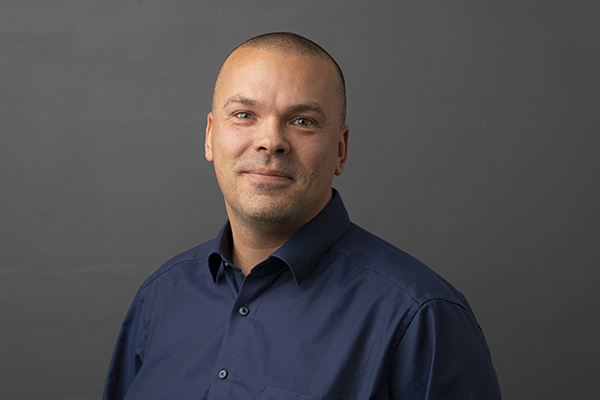Jesper Petersen
Research leader

Project title
Non-Muslim Islam
What is your project about?
In my project I examine non-Muslim Islam. That is, productions of Islam which do not include the belief in Allah and which are mostly produced by non-Muslims. It may seem a little strange to focus on non-Muslims, because Islamic scholars usually study how Muslims interpret Islam, but that is exactly the point of my project. I have observed that non-Muslims produce Islam, although with completely different purposes than belief in Allah. Therefore, I want to test the hypothesis that non-Muslim Islam is the most dominant form of Islam in Danish media. Afterwards, I will investigate non-Muslim Islam in the Danish court system, education system, parliament, and media. My project will explain how and why non-Muslims produce Islam, what functions such productions have in society, and what meanings they have for common knowledge about Islam in Denmark.
How did you become interested in your particular field of research?
In high school I actually wanted to become a physicist, but I became interested in the humanities because of several really talented and inspiring teachers. I chose religion because I found the phenomenon fascinating. I then found out that religious studies constitute a so-called area study, where you use a very wide range of methods and theories from both the humanities and the social sciences to investigate your research object. This means that the study of religion is very branched, and that you study religion as a phenomenon in very different contexts. You simply get far and wide, and I like that. Furthermore, there are – just like in other sciences – a number of big questions to which we do not yet know the answer, and it is the search for the answers that motivates me. That, however, I think is very common for researchers in general.
What are the scientific challenges and perspectives in your project?
My project studies how non-Muslims both produce and consume Islam, and thus I break with the assumption that all Islam includes belief in Allah. This means that I have to reconceptualize what Islam is as a research object. For example, that Islam can be produced by political parties, journalists and primary school teachers with different purposes than belief in Allah. The biggest challenge will be to develop a new definition of Islam in which the consequences of this observation are incorporated. If I succeed, it will, however, have great significance for Islamic studies and probably also religious studies, because this will change the definition of what religion is or can be. Furthermore, a new definition will establish the study of non-Muslim Islam as a new field of research – and the study of non-Jewish Judaism, non-Christian Christianity and so on.
What is your estimate of the impact, which your project may have to society in the long term?
My project focuses on the court system, the education system, the Danish parliament and the Danish media. In other words, it is a project which investigates institutions that are in contact with important issues in today's society. Therefore, I expect that my project will lead to better legal certainty, higher quality of law, a more grounded political debate, better Muslim representation, a more relevant and accurate journalism, and new didactic tools and textbooks with reflections on the knowledge about Islam that is taught in the educational system. I have a plan for how I will ensure these impacts and thus solve big and small problems in society with my project.
Which impact do you expect the Sapere Aude programme will have on your career as a researcher?
It is of enormous importance to my career that I through the Sapere Aude program have received research funding to pursue my observation that non-Muslims both produce and consume Islam - and that Islam can be produced for other purposes than belief in Allah. With this funding, I can test my hypothesis and investigate the phenomenon of non-Muslim Islam empirically. If the hypothesis turns out to be true, then it is crucial that my research project is of high quality so that it convinces my colleagues. It would be a huge boost to my career as a researcher to make such a clear mark on Islamic studies at such an early stage in my career.
Background and personal life
Despite my great interest in religion, I am not religious myself. For example, I was wed by an Elvis impersonator in Las Vegas, and I am not a member of any religious community. My curiosity also extends far beyond Islamic studies and religious studies. During my student years, I backpacked in a large part of the world - typically 2-3 months a year - and subsequently lived in Jordan and twice in Egypt. Furthermore, I am still interested in physics – especially in astrophysics – and observe the starry sky with an amateur telescope. In short: I am a curious person and take advantage of the many opportunities available in today's information society to satisfy my curiosity.
View all research leaders here
Research institution
University of Copenhagen
Research field
Islamic Studies
City of your current residence
Copenhagen
High school
Greve Gymnasium
